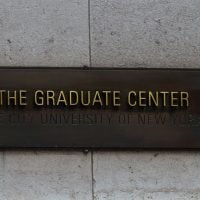Deadline: 22-Jun-24
The United States Agency for International Development in Bangladesh (USAID/Bangladesh) is seeking applications for a Cooperative Agreement from qualified US and non-US organizations to fund an activity titled Responsive Local Governance (RLG) Activity.
Purpose
- The purpose of the new LG initiative is to support LEGI in improving its planning and responsiveness to the concerns and service delivery needs of their communities, making sure no group is excluded. With the new LG activity, USAID will support an inclusive and localized approach to ensure citizen accountability.
- Activity Goal: More effective and responsive local governance and practices.
- Activity Objective: To develop LEGI as an effective, responsive, inclusive and accountable institution to address social issues and provide quality basic services to the most marginalized.
Funding Information
- USAID intends to provide $15 million in total USAID funding over a five (5) year period. USAID intends to award up to one (1) Cooperative Agreement pursuant to this notice of funding opportunity.
Cross Cutting Issue Integration
- Youth: Bangladesh has a large youth population. Youth have enormous potential to play a pivotal role in promoting local-level democracy by helping local governments serve their constituents effectively. The RLG activity will try to involve youth in the Citizens’ Forum, which will not only provide them with the opportunity to play a watchdog role but also help build them as future leaders. Youth can also be involved in the process of local resource mobilization by taking part in surveys to identify existing and new sources of revenue generation for local governments. The activity will design and provide appropriate training to youth in democracy- and governance-related issues, particularly in relation to the functions and responsibilities of local governments.
- Gender: The RLG activity will work to ensure that women receive the leadership and management skills necessary to be successful at the local level. The activity will also support women to be recruited and trained for local government jobs. Where possible, the RLG activity will promote the concept of expanded roles and responsibilities for women through various seminars, workshops, and conferences. The activity will apply gender transformative approaches to build gender equal attitudes of elected male members using innovative training methods. The RLG activity will support women and men to enhance their leadership and management skills and also promote dialogue to create more space for women members to perform their responsibility. Leadership training for women local representatives and women local council candidates will be a priority. Training for the elected women Vice Chairs of the Upazila Parishads as well as the Union Parishad representatives in their roles and responsibilities and other related issues will be a major focus of this activity. The activity will also showcase women success stories to inspire other women in the community.
Results Framework
- Intermediate Result-1: Strengthened LEGI capacity to be more transparent and accountable to the community and to monitor the quality of public and private services:
- Under this IR, the RLG activity will develop tools and practices that enable local systems to become more accountable, gender-sensitive, effective, and responsive institutions. For sustainability, RLG will work closely with the National Institution of Local Government (NILG) to incorporate successful training interventions in their curriculum (more will be explored in the LG Assessment for sustainability). Under this IR, the activity will support policy advocacy by LEGIs to encourage the national government to adopt legal and policy reforms to expand roles, authorities, and resource allocations for local governments so that they can improve service delivery by the cognizant offices. RLG will make efforts to promote e-governance practices within the LEGI and also to make them instrumental for overall e-governance practices at the community level. Through this IR, USAID intends to work with relevant local government actors to refine and institutionalize participatory practices in annual planning and budgeting for their areas.
- Intermediate Result-2: Improved civil society, community-based organization, and citizen participation in local decision-making and in monitoring public service delivery, including those contracted out to the private sector:
- This IR will work on citizen participation in local decision-making by developing Citizens’ Forums, including training and technical assistance to enhance the forums’ ability to play an effective and active role in public management oversight. The training will include immediate and ongoing opportunities over an extended period of time for participants to practice and apply their new knowledge, skills, and tools to their participation in local governance, with accompanying coaching by the RLG activity. The LG Assessment will explore existing Citizen Forums at the community level and recommend if those can be included in the RLG activity. Through the existing forums or new forums, the activity will prepare the community to participate in the annual planning and budget session and at the same time strengthen their advocacy capacity for better services.
- Intermediate Result-3: Strengthened LEGI-private-sector-civil society organization (CSO) coordination to improve the quality of public and private services:
- Coordination among central government (both field administration and service delivery offices), CSOs and the LEGIs are crucial to ensure optimal governance at the local level. Recent studies indicate that NGOs have crucial roles in improving local governance, especially during the post-pandemic era. Both LEGIs and CSOs/CBOs work very closely with citizens and, with support, can form a tight alliance to advocate for better services for the community. In doing so, this activity will strongly encourage civil society and LEGI to partner with the private sector for improving service delivery.
Geographic and Beneficiary Population Targeting
- The new Local Governance Activity will work at the national and local level. For working at the local level, the activity will target one division which has the highest number of people living under the poverty line. In selecting the division, the activity will also consider the number of people of marginalized communities including people with disabilities and ethnic (plain land) and religious minorities.
Eligibility Criteria
- This funding opportunity is open to all eligible U.S. and non-U.S. nongovernmental organizations (NGOs) entities (other than those from foreign policy restricted countries), including educational organizations and universities, and public international organizations, etc.
- Pursuant to Code of Federal Regulations (CFR) 2 CFR 200.400(g), it is USAID policy not to award profit under assistance instruments such as Cooperative Agreements. While for-profit firms may participate, pursuant to 2 CFR 700.13(A)(1) Prohibition against profit: no funds will be paid as profit to any for-profit entity receiving or administering Federal financial assistance as a recipient or subrecipient, and as such, for-profit organizations must waive profits and/or fees to be eligible to submit an application.
- USAID welcomes applications from organizations, which have not previously received financial assistance from USAID.
- Individuals are not eligible to apply.
- USAID will not make an award to an applicant if the applicant has not fully complied with the UEI and SAM requirements by the time it is ready to make the award.
- Applicants must have established financial management, monitoring and evaluation processes, internal control systems, and policies and procedures that comply with established U.S. Government standards, laws, and regulations. The successful applicant will be subject to a responsibility determination assessment (Pre-award Survey) by the Agreement Officer (AO).
- The Recipient must be a responsible entity. The AO may determine a pre-award survey is required to conduct an examination that will determine whether the prospective recipient has the necessary organization, experience, accounting and operational controls, and technical skills – or ability to obtain them – in order to achieve the objectives of the program and comply with the terms and conditions of the award.
- In order for an award to be made, the AO must make a positive “risk assessment”, as discussed in ADS 303.3.9. This means that the applicant must possess, or have the ability to obtain, the necessary management and technical competence to conduct the proposed activity. The applicant must agree to practice mutually agreed-upon methods of accountability for funds and other assets provided or funded by USAID. In addition to other conditions of this NOFO, organizations must have a politically neutral humanitarian mandate, a commitment to non-discrimination with respect to beneficiaries and adherence to equal opportunity employment practices. Non- discrimination includes equal treatment without regard to race, religion, ethnicity, gender, and political affiliation.
- In the absence of a positive risk assessment, an award can ordinarily not be made. However, in rare cases, an award can be made with “Specific Conditions” (e.g., additional non-standard award requirements designed to minimize the risk presented to USAID of making an award to an NGO for which a positive risk assessment cannot be made), but only where it appears likely that the applicant can correct the deficiency in a reasonable period.
For more information, visit Grants.gov.









































